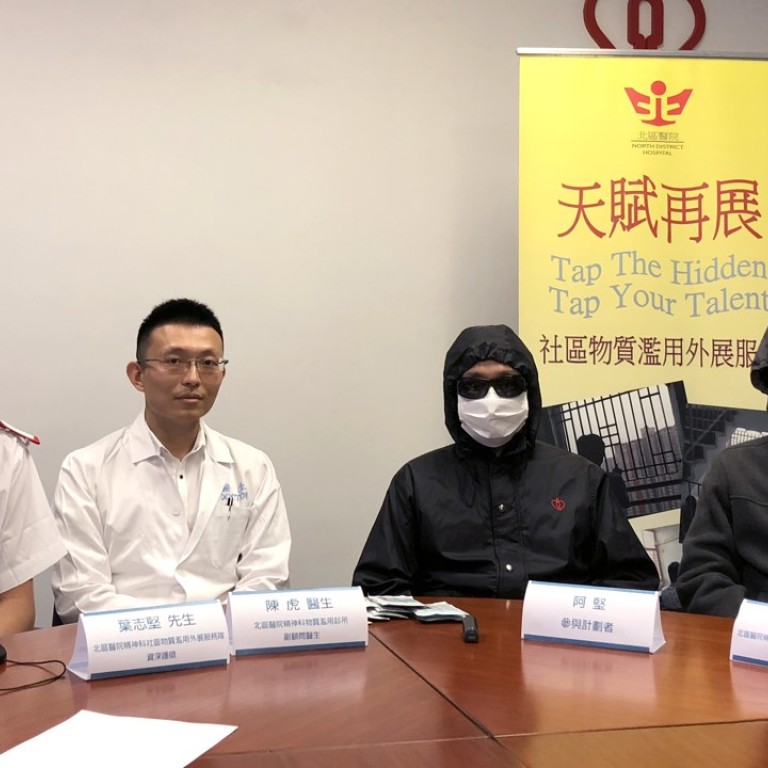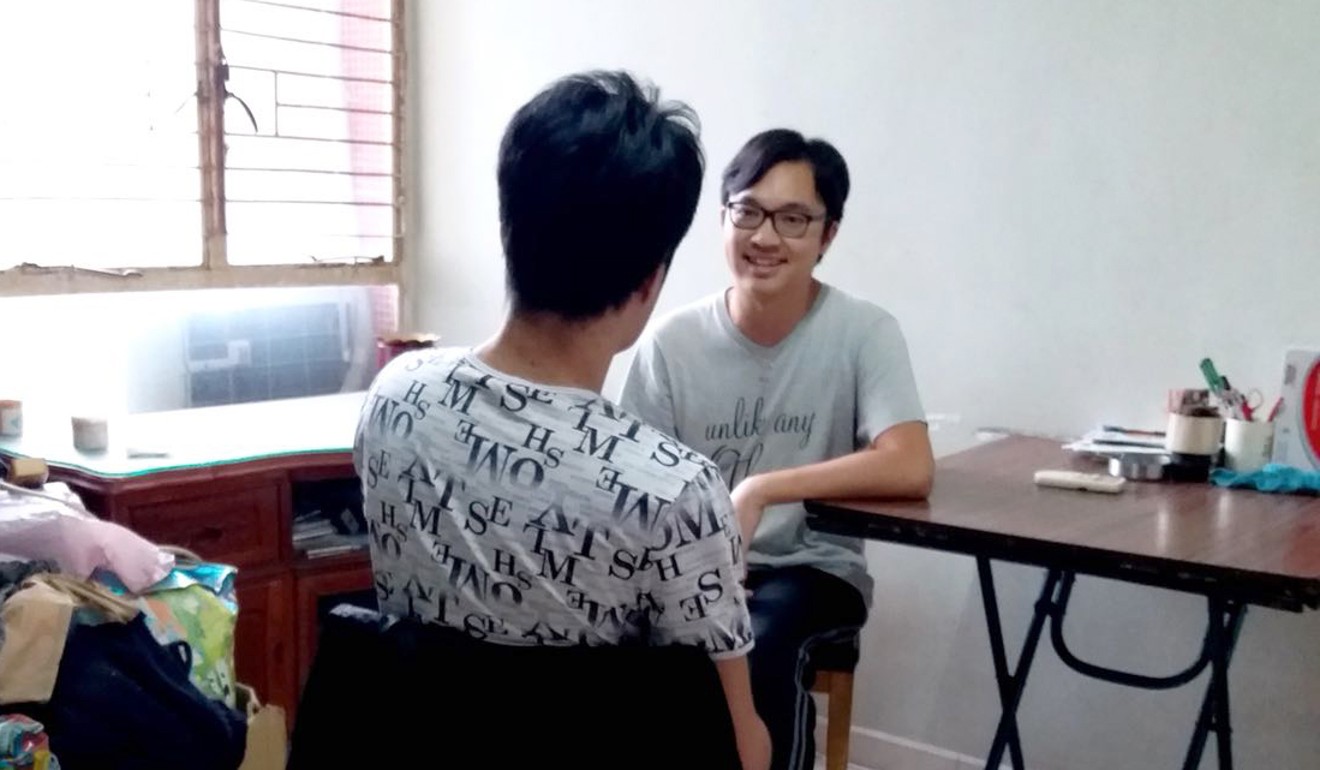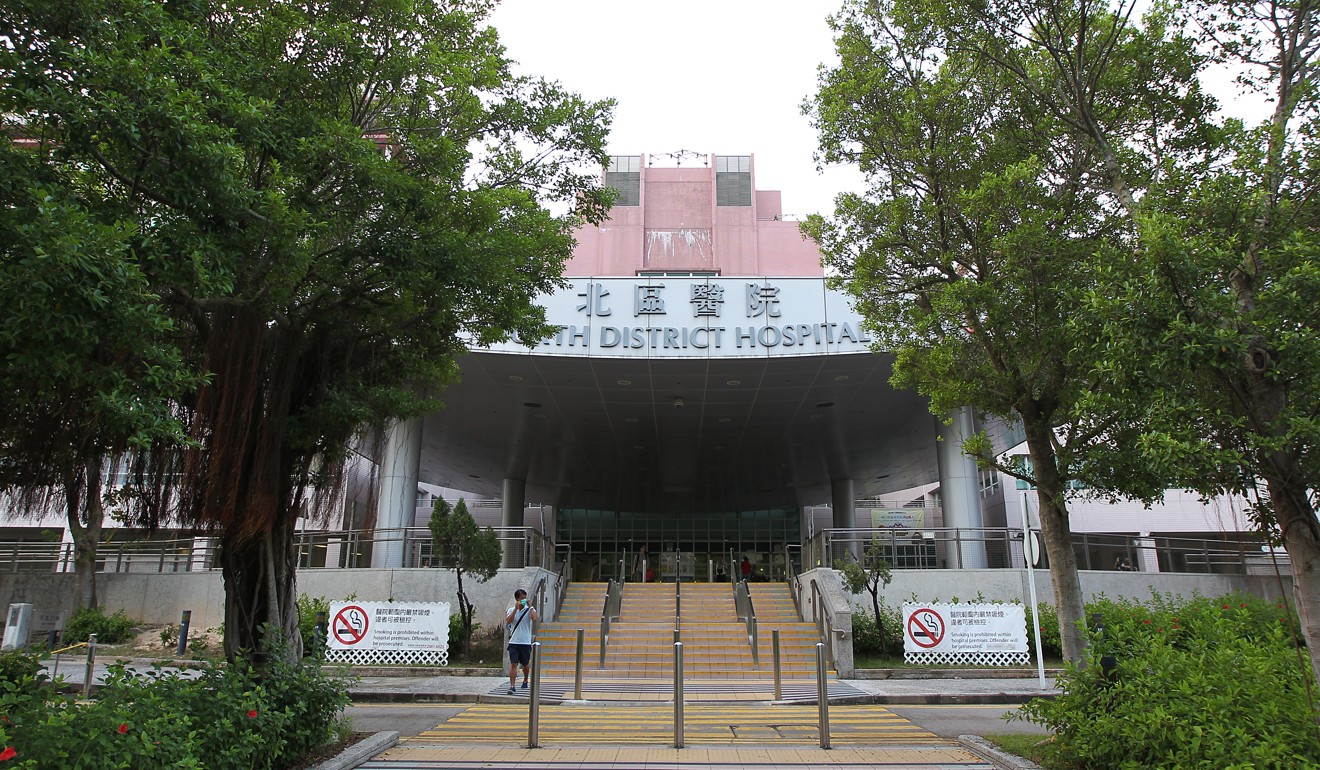
New scheme treats Hong Kong’s drug abusers by exploring the mental illnesses behind their addictions
Hospitals team up to provide programme that has helped 73 per cent of patients beat their battle with drugs
Twenty years as a drug addict left Ah Kin jobless, mentally ill, and withdrawn from society.
At one stage the 38-year-old’s hallucinations became so bad he tried to take a gun from a plain-clothes policeman to protect himself from unseen assailants.
On another occasion he stopped an ambulance in the street and told the paramedics he was being hunted.

His drug use worsened to such an extent doctors said his behaviour had affected his mother, and told him his mother should see a psychiatrist too to deal with his problem.
That was over one year ago. The Ah Kin then, and the Ah Kin now, who is drug free and gainfully employed as a warehouse worker, are two different people.
“I used to have difficulties communicating with people, I was afraid of facing others,” he said. “I had a low sense of existence and no confidence before. Now I think I’m not really useless.”
This impressive transformation is largely thanks to an outreach programme developed by three public hospitals – North District Hospital, Tai Po Hospital and Alice Ho Miu Ling Nethersole Hospital – which cover the Tai Po, Fanling and Sheung Shui districts.
The scheme – Tap the hidden, Tap the talent – focuses on patients suffering from drug addiction and mental illness.
The Hong Kong island providing a new dawn for rehabilitating drug addicts
Ah Kin first took drugs age 18, when he went to a disco with friends. Over the years, he has been admitted to psychiatric wards eight times, and has spent more than 130 days in hospital.
The scheme, which was not without its pain, taught him how to develop personal interests so he would not think about taking drugs when he had free time during the rehabilitation process.
“I really suffered during the drug treatment and rehabilitation,” he said. “The doctors and nurses offered me a lot of help on how to carry on.”
Ah Kin is just one of 216 people who have joined the scheme since its inception in August 2015, and during that time the organisers said they had successfully treated to a greater or lesser degree 73 per cent of patients.

In the past, the conversation surrounding drug abuse focused on the infectious diseases that came from sharing needles, rather than mental illness, said Chan Fu, associate consultant in the Department of Psychiatry at North District Hospital.
“Actually, drug abuse has a strong association with mental illness,” he said, adding there were mental illness patients addicted to drugs, as well as drug abusers getting mental health problems.
In the past decade, nearly 85 per cent of newly reported drug abusers in Hong Kong took psychotropic substances, including methamphetamine (commonly known as “Ice”), cocaine, and cannabis. Side effects include severe mental illnesses such as depression, anxiety, and psychosis.
Addiction to phones, social media, cybersex, online shopping and gaming bigger now than drug addiction, counsellors say
Backed by the government’s Beat Drugs Fund, doctors and nurses visit patients in their homes once or twice a month to do assessments, for counselling once they have joined the scheme, said Ip Chi-kin, advanced practice nurse from North District Hospital.
Helping with the family members is an important part of the scheme, Ip said, pointing out that while doctors and nurses may be with the patients for two or three years, family members will accompany them for 10 or twenty years.
“To open a shop is easy, to keep it open is an art. Drug rehabilitation is the same,” Ip said.

